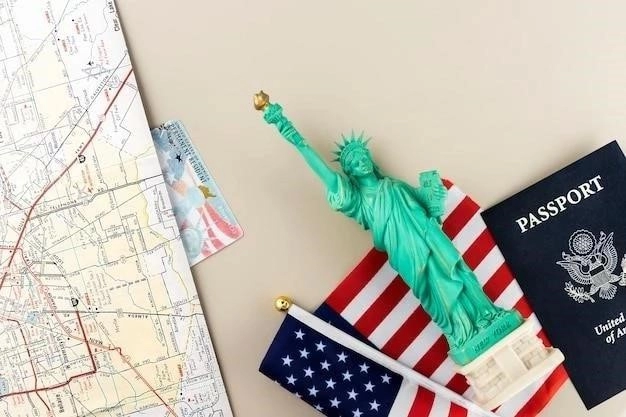The Essence of American Identity in a Multicultural Society

This exploration delves into the multifaceted nature of American identity within the context of the United States’ richly diverse populace, examining the values, ideals, and shared experiences that bind this nation together.

Defining American Identity: Core Values and Shared Ideals

Defining American identity is a complex endeavor, often likened to “a continuing process” rather than a fixed state. At its heart lies a commitment to a set of core values and shared ideals, often enshrined in seminal texts like the Declaration of Independence and the Constitution. These foundational documents articulate principles of liberty, equality, and republicanism, serving as cornerstones of the American ethos. This commitment to shared ideals transcends any specific national, linguistic, religious, or ethnic background, theoretically allowing anyone who embraces these principles to become American. However, this universalist ideal exists in tension with the historical reality of racial and ethnic exclusions that have shaped the nation’s narrative. Navigating this tension requires acknowledging both the unifying power of shared values and the historical complexities that continue to shape the American experience.

Historical Perspectives on American Identity: From Founding Principles to Modern Challenges
Understanding American identity necessitates a historical perspective, tracing its evolution from the nation’s founding principles to the modern-day challenges it faces. The very notion of a unified American identity emerged as a response to British colonialism, solidifying during the fight for independence and the subsequent establishment of a new republic. This nascent identity, however, grappled with internal contradictions from the outset, notably the institution of slavery and the displacement of Native Americans, realities that directly contradicted the espoused ideals of liberty and equality. Over time, waves of immigration further diversified the American populace, introducing new perspectives and cultural influences while simultaneously prompting debates about assimilation and belonging. Throughout this evolution, the question of “what it means to be American” has remained a persistent and evolving dialogue, reflecting the nation’s ongoing struggle to reconcile its foundational ideals with its complex and often contradictory history.

The Role of Immigration in Shaping American Identity: Assimilation vs. Multiculturalism
Immigration stands as a cornerstone of the American narrative, intrinsically intertwined with the nation’s ever-evolving identity. From the earliest waves of European settlers to the diverse influx of newcomers throughout the 19th and 20th centuries, immigration has continuously reshaped the fabric of American society. This dynamic process inevitably gives rise to the perennial debate between assimilation and multiculturalism—two distinct, yet interconnected, approaches to incorporating newcomers into the national fabric. Assimilation emphasizes the adoption of prevailing cultural norms and values, often advocating for a melting pot model where individual differences meld into a unified American identity. Conversely, multiculturalism celebrates the preservation of distinct cultural heritages, advocating for a mosaic model where diverse communities retain their unique identities while coexisting within a larger national framework. This ongoing dialogue between assimilation and multiculturalism underscores the enduring challenge of balancing unity and diversity—a challenge central to understanding the evolving nature of American identity in the 21st century.

Civic Solidarity and its Importance for a Functioning Democracy in the United States
Civic solidarity, the collective sense of responsibility and shared purpose among citizens, forms the bedrock of a functioning democracy, particularly in a nation as diverse as the United States. It enables citizens to transcend individual interests and prioritize the common good, fostering a spirit of cooperation essential for addressing societal challenges and advancing national goals. This shared commitment to democratic values, as embodied in the principles of justice, equality, and civic engagement, enables a society to effectively debate and resolve differences, ensuring that the needs and perspectives of all members are considered. Moreover, civic solidarity serves as a bulwark against fragmentation and polarization, fostering trust and understanding among citizens from diverse backgrounds. By nurturing a sense of shared identity and common purpose, civic solidarity strengthens the bonds of citizenship, creating a more cohesive and resilient democracy capable of navigating the complexities of a pluralistic society.

The Future of American Identity: Navigating Diversity and Fostering Unity
As the United States continues to diversify, navigating the confluence of its multifaceted heritage and evolving demographics becomes increasingly crucial for shaping the future of American identity. The challenge lies in forging a path that honors and integrates the richness of its multicultural tapestry while simultaneously reinforcing the shared values and ideals that bind the nation together. This requires moving beyond simplistic binaries of assimilation versus multiculturalism, fostering instead an environment where individuals can retain their cultural heritage while embracing a shared sense of belonging. Education plays a pivotal role in this process, fostering intercultural understanding, promoting civic engagement, and cultivating a nuanced appreciation for both the nation’s triumphs and its struggles in striving toward a more perfect union. Ultimately, the future of American identity hinges on the nation’s ability to harness its diversity as a source of strength, fostering a sense of unity rooted in shared values, mutual respect, and a commitment to the common good.










